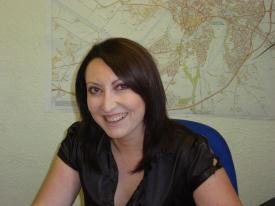04 Oct ‘Hard To Reach’ Communities Or A Failure To Listen?
We need a new approach for consulting seldom heard groups, argues Shantele Janes from Cheshire Halton & Warrington Race and Equality Centre in this week’s Member’s Blog.
The public sector must have congratulated itself for coming up with the label ‘hard to reach’ groups. Suddenly there was a ‘reason’ why they couldn’t reach particular communities. It wasn’t how they consulted, but more to do with an ‘elusive’ group of people hiding under rocks with hands over their ears.
Our former chair often said ‘there’s no such thing as hard to reach communities, only hard to engage organisations’…and I have to agree.
Now, more enlightened individuals use ‘seldom heard’ which at least nods in the right direction, recognising organisations’ failure to listen.
Cheshire, Halton and Warrington Race & Equality Centre is a charitable organisation that aims to eliminate discrimination, promotes equality of opportunity and good relations between people from different protected strands in the Cheshire sub region. We offer various services, including discrimination casework, capacity building for BME groups, equality training and consultancy.
Working with BME communities for over ten years in a predominantly white area, effective engagement and consultation is a huge issue for me. Note how I say ‘effective’ – of course consultations have happened, but generally these were tick box exercises with what we often call ‘the usual suspects’. The lack of a developed BME sector was blamed for this approach, with consultations limited to the few community groups that existed; other communities were conveniently ignored.
We decided it was time for a new approach. We held records of numerous service users, members and volunteers, but lacked the resources to do anything with this information. In 2004 we found we had a funding surplus from a project. All the partners involved had prioritised consultation for their race equality schemes, so we suggested using the surplus to develop a panel of BME people prepared to be consulted on policies. They agreed.
We followed everything we’d heard communities say about consultation and drew up a participant’s charter.
We approached everyone we knew, asked them to join and told them they could dip in and out of it, giving them flexibility to be involved when possible. We wanted to value people’s time, so we agreed to give vouchers to all participants.
We now have around 300 people on the panel from many communities. But, the panel isn’t used enough. One of the first things to be axed with spending cuts is consultation that costs. I fear we’re now moving backwards - despite having an effective mechanism for consulting BME communities, many agencies are returning to the usual suspects, who give opinions for free and tick boxes.
No longer are BME communities hard to reach, they’re just too expensive to reach.
Disclaimer: Blogs do not necessarily reflect the views of Voice4Change England.
